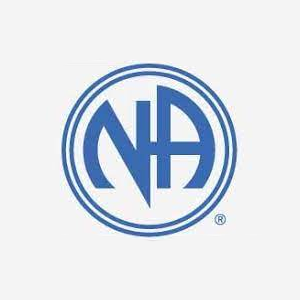Drug & Alcohol Rehab in Maidstone

How Does Rehab Work?
The process of rehabilitation helps individuals regain their balance and their overall quality of life. Rehab involves patient-focused therapy in which behaviours involving drug and alcohol use are targeted, coping strategies introduced, and support services provided. Individuals are taught how to prevent relapse with the option of entering an inpatient or an outpatient programme. residential rehab requires that individuals stay at a chosen facility or recovery centre for the duration of treatment. Outpatient rehab programmes have clients maintain their daily lifestyles while partaking in therapy sessions and group work.
What Happens During Residential Rehab?
When you are ready to enter rehab for drug and/or alcohol misuse, it is a brave step towards recovery. Although achieving balance and breaking the cycle of dependence takes some work, it can be achieved. To assist you to make an informed decision concerning treatment, we look at the options available and what to expect during rehab.
Rehab occurs in stages. It starts with a medical assessment. Individuals must be professionally assessed to help staff understand the nature of your dependence, its history and comorbid disorders (such as anxiety or depression). The information obtained from the assessment is used to create a unique therapy programme for you. Because every person is different, a personalised treatment plan will help provide a more tailored programme that meets your needs and requirements.
Assessments are followed by alcohol or drug detoxification. Individuals who enter detox will begin withdrawing from substances including alcohol, as the body returns to a normal state of function. This timeline will differ depending on the type of drug used and the length of dependency. Only when the body no longer contains traces of the substance will individuals participate in a treatment plan.
Therapy is an important part of the rehab process and every aspect of treatment should be tailored to address individual backgrounds, addictions, and circumstances. Interventions can range from private counselling and cognitive behavioural therapy to developing coping strategies, skills, and attending group meetings.
1. Assessment

A medical assessment is performed just before treatment to identify medical history, and alcohol or drug use over time. If you are searching for residential treatment, an admissions team will give you a telephone assessment. An assessment by telephone helps the treatment facility deliver a tailored treatment package. It also helps medical staff to support the individual during detox.
Should you require the assistance of a medical professional to manage addiction, seek a medical assessment prior to treatment commencing. Assessments are an important part of choosing the right therapy and whether inpatient or outpatient programmes are most suitable for your healthcare requirements.
2. Detox

Detox is a period in which drugs and alcohol are no longer taken and cleared from the body. It is a process that is best managed by medical staff in a rehabilitation facility.
Detox is necessary where substance misuse and dependency are present. It should be managed by experienced and knowledgeable medical staff to prevent uncomfortable and severe withdrawal symptoms. For those who go through withdrawal symptoms, there is a higher risk of relapsing if not managed within a treatment clinic. In a residential setting, qualified staff may offer medication to minimise uncomfortable withdrawal. The approach for therapy, once detox is completed, is determined by the assessment.
3. Therapy

Therapy is sought when the body is rid of drugs including alcohol. The choice of being assigned to an inpatient or an outpatient service will depend on the individual assessment, budget, and life commitments. Therapy that is offered in treatment ranges from individual counselling with a therapist, the attendance of group therapy, and emphasis on building positive coping mechanisms and skills.
Step by Step Process for Residential Rehab
To understand your medical and mental health history.
Arrange a suitable date to begin your journey to recovery.
Begin the managed withdrawal process from substances including alcohol.
To understand the root cause of addiction and how to overcome it.
Aftercare is provided to help manage the risk of relapse.
To help heal the wounds that addictive behaviour has caused others.
Find your Nearest Rehab Centre in Maidstone
The nearest rehab centre is ridge House at Fant Oast Detoxification Unit.
Address: Bridge House at Fant Oast Detoxification Unit, Fant Oast, Upper Fant Road, Maidstone ME16 8DE, United Kingdom
Call 0333 4444 432 to discuss your alcohol or drug rehab requirements and any other questions you may have about the process of residential rehab.
Outpatient Addiction Services in Maidstone
To make an informed decision on which form of treatment will assist you in your journey to overcoming dependence, it is important to understand the pros and cons of outpatient and residential rehabilitation. Outpatient care can be very useful as it provides a flexible and cost-effective alternative to residential rehab.
An outpatient service doesn’t require you to remain at the clinic for therapy. If you have work, family, or other lifestyle commitments, outpatient programmes allow you to focus on these areas while visiting a clinic or counsellor to receive addiction therapy and other support services.
If you are interested in receiving outpatient care, it is important to find the right programme that suits your needs. Outpatient services range from paid private counselling to free charitable organisations specialising in drug and alcohol addiction.
NHS Free Addiction Services in Maidstone
The Benefits of Outpatient Services
Private Outpatient services focus on individual support that is customised to suit the needs of every patient. – Outpatient treatment is a more flexible setup that can aid many struggling with addiction, regardless of financial or family commitments. It includes the attendance of weekly sessions that are delivered by a qualified therapist or counsellor. – It is a more cost-effective treatment programme in comparison to inpatient services.
The Challenges of Outpatient Services
While one remains at home and takes part in outpatient programmes, they could be at higher risk of relapse due to continual exposure to triggers and easy access to drugs or alcohol. Another point to consider is that free outpatient addiction services – offered by the NHS and other UK-based charities – do not provide a bespoke treatment plan and waiting lists are to be expected.

How Much Does Rehab Services Cost in Maidstone?
Residential rehab can cost £1500 – £4000 per week. To determine how much other addiction treatment services cost requires a closer look at the services below. Inpatient rehab is the most expensive of the two; however, there are alternative options and providers including charities offering free drug and alcohol rehab services for qualifying individuals.
An example of a free addiction service is that provided by Turning Point. The organisation provides a variety of structured support programmes to address both drug and alcohol problems. It is a self-referral service. Apart from organisations such as Turning Point, you may contemplate private counselling or one of the many free support groups that include Narcotics Anonymous (NA), Cocaine Anonymous (CA), and Alcoholics Anonymous.
Support Groups in Maidstone

Families do Recover Group
Behind the main building, Lower Grange Farm, Grange Lane, Maidstone,Kent ME14 3DB

Cocaine Anonymous
Mill House, Mill St, Maidstone ME15 6XH

Maidstone Living Sober
Cafe Zest (side entrance), 13 Brewer St, ME14 1RU
The Pros and Cons of Seeking Treatment in Your Local Area
Pros
1. You are familiar with the area which may provide a layer of comfort/safety.
2. Family or friends can easily travel to visit or are close by.
3. You could save on the costs of travelling long distances for addiction treatment, or free addiction services may only be offered in your area of residency.
Cons
1. A local environment means access to drug dealers or other triggers. This is more of a concern if you decide upon outpatient programmes.
2. Not considering locations outside your area could result in a missed opportunities for more valuable and rewarding programmes.
3. Addiction treatment programmes that are nearby don’t always offer the best standard of treatment.
If you are unsure of how to look for a rehab service you can trust, consider the CQC. The CQC website offers listings of rehabilitation services and organisations that are ranked according to the standard of its services.

